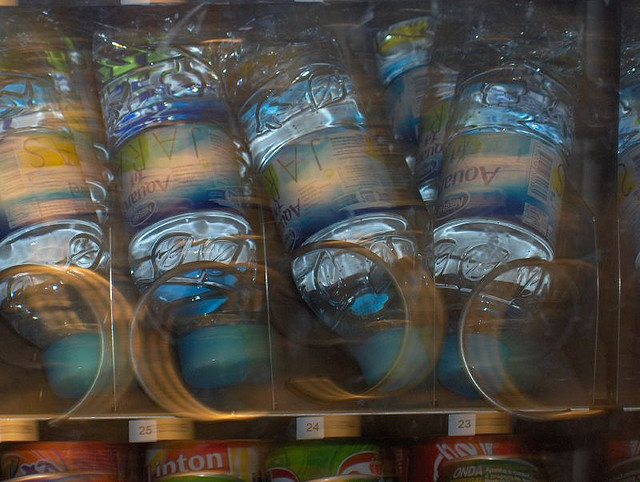By Megan Poinski
Megan@MarylandReporter.com
Following a campaign full of promises to help the environment, clean up the Chesapeake Bay and create green jobs, the Maryland legislature – especially the House of Delegates – let environmentalists down with a lackluster performance on the Maryland League of Conservation Voters’ Environmental Scorecard.
This year’s scorecard, released on Tuesday, shows how members of the House and Senate voted on important pieces of environmental legislation. Each lawmaker received a percentage grade calculated from his or her votes. The averages for both chambers are not high, with senators garnering 61% and members of the House of Delegates averaging 68%.
 “We’re very disappointed,” said Jen Brock-Cancellieri, deputy director of the League of Conservation Voters.
“We’re very disappointed,” said Jen Brock-Cancellieri, deputy director of the League of Conservation Voters.
Brock-Cancellieri said that while environmentalists are used to seeing less support from the Senate, its environmental score increased this year by five percentage points, from 56% in 2010. Senators from both parties also did better than in 2010, with Republicans increasing their average nine points to 34% and Democrats increasing their average two points to 70%.
While the House of Delegates has a higher overall average than the Senate, it dropped 10 percentage points – from 78% pro-environmental votes in 2010. The scores of delegates from both parties also fell, with Republicans’ average dropping four points to 42% and Democrats diving 11 points, from 89% in 2010 to 78% this year.
But the discouragement doesn’t just stop with the averages, Brock-Cancellieri said. The items on the environmental scorecard, chosen by board members of the League of Conservation Voters and Environment Maryland, are votes that can show the direction and decision-making on environmental policy. Brock-Cancellieri said that bills that easily get unanimous approval tend not to be included on the scorecard, while those that face much tougher decisions are included.
This year, several bills that represent significant environmental policy steps – and that Brock-Cancellieri said are the environmental groups’ biggest policy initiatives – were never voted on. They appear in the report’s “Bill Dead Zone,” and include Gov. Martin O’Malley’s two high-profile environmental initiatives, offshore wind energy and banning new septic systems in large developments. The “dead zone” also includes legislation to assess a 5-cent fee for plastic and paper bags, instituting storm water-remediation fees and prohibiting arsenic-containing additives in chicken feed.
“A lot of our priority legislation didn’t even get out of committee,” Brock-Cancellieri said. “It was that disappointing of a year.”
Bills on the scorecard include making incinerators eligible for the top tier of renewable energy, creating an electric vehicle council to oversee new vehicle charging stations, limiting potentially polluting lawn fertilizer and banning the use of the toxic chemical bisphenol-A — or BPA — in baby bottles.
Brock-Cancellieri also looked at environmental scorecards from years past to see if there were any trends and if new legislators were taking their first year on the job to learn the ropes. Compared to the scorecard in 2007 – the first year after the last statewide election – the answer is no. Brock-Cancellieri said that legislators in both houses and both parties had higher scores – and passed more meaningful legislation – four years ago.
The difference may have been the push to get the state on more stable economic ground, and to create jobs.
“I feel that the legislature was short-sighted” this year, she said. “They missed the connection between good economic policy and good environmental policy.” Brock-Cancellieri said that the wind energy bill is an example of something that would serve both purposes.
While 2011 has been disappointing for the environment so far, Brock-Cancellieri said that environmentalists remain optimistic. She said the league plans to work with legislators during the fall special session in an effort to get more progressive environmental policies passed.
“We understand that sometimes it takes a couple of years to get something through,” she said. “It was definitely a disappointment, but we look to the future.”






Why are the rabid
environmentalists complaining? High school environmental literacy instruction will
now teach students in Maryland to only drop “green” candy wrappers, “green” plastic
soda containers and “green” fast food plates on people’s front lawns while
walking to school!